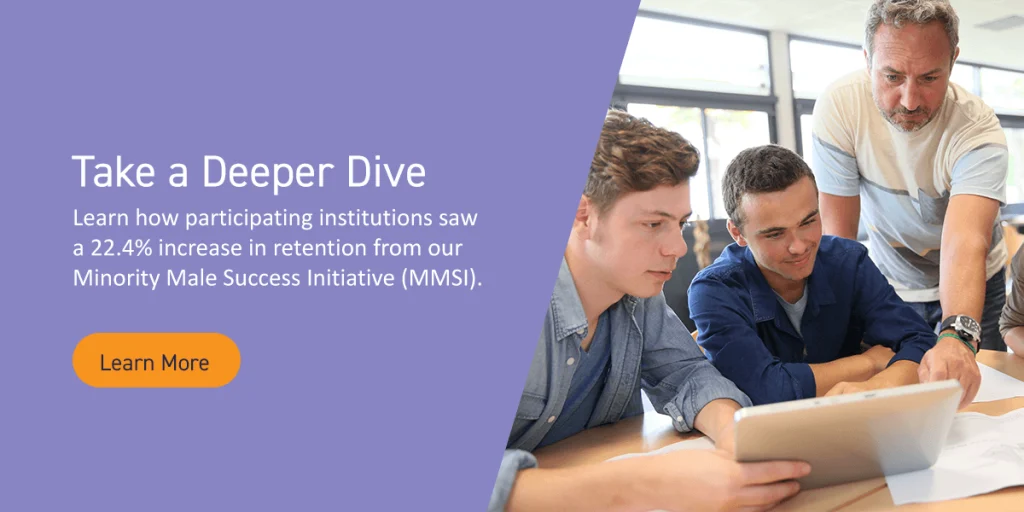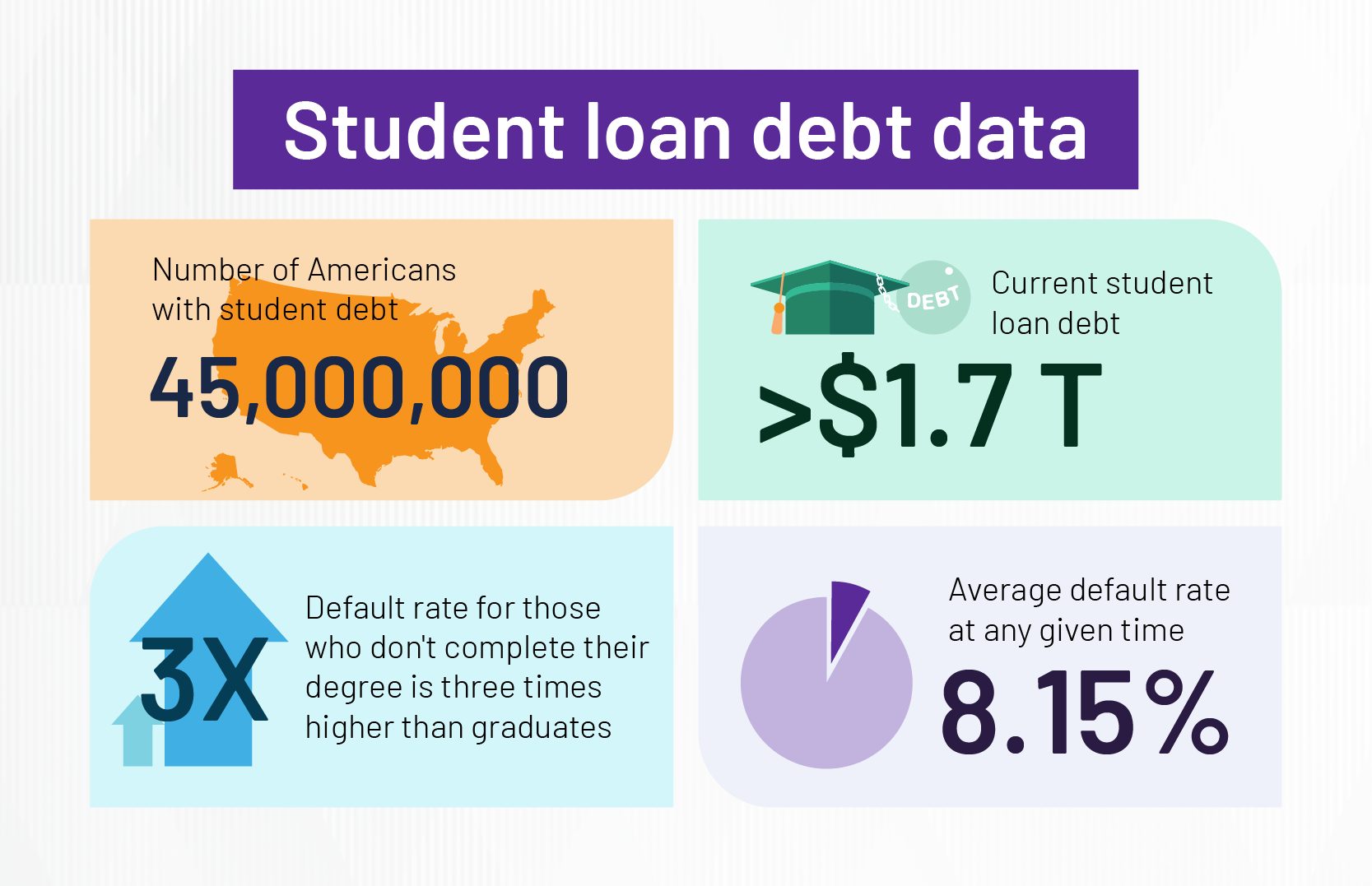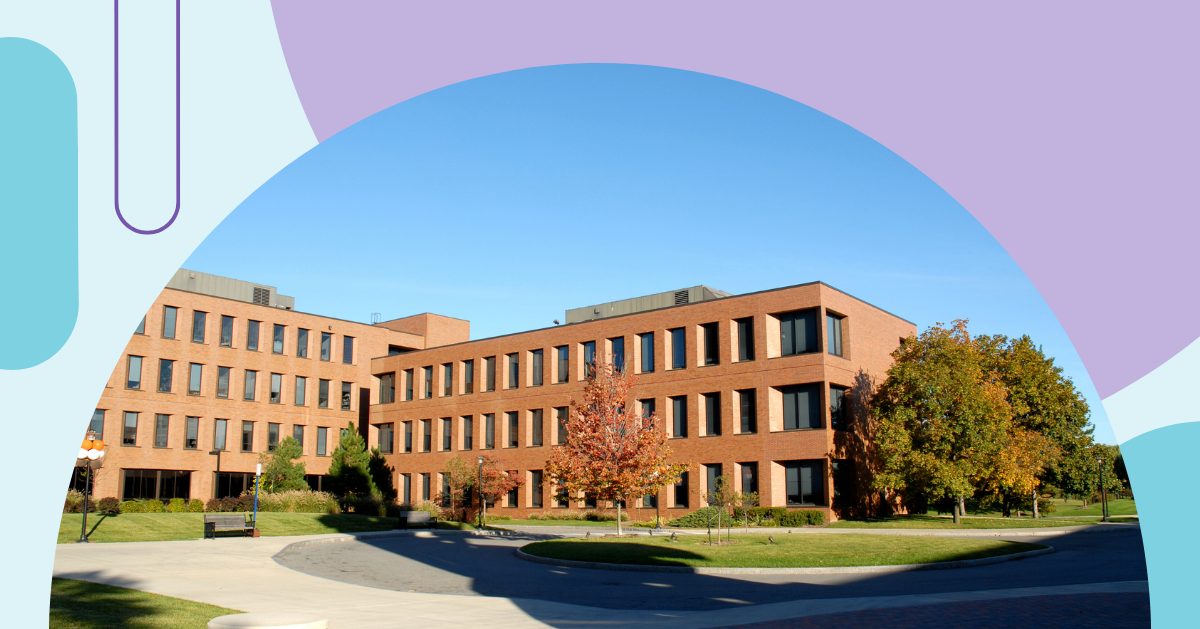
Over the course of five years, Watermark (formerly Aviso Retention) — partnered with DVP-PRAXIS LTD, JFF, and the Carolina Works consortium led by Central Carolina Community College — to conduct the First in the World (FITW) research program, studying the effects of success coaching. Without support, guidance, and mentorship, achieving a college degree can be a challenge. Nearly one in three first-year students does not return for their sophomore year of college and almost half of the students who start a college education don’t finish.
Through the FITW research study, 10 North Carolina community colleges used Watermark to administer a technology-enabled success program to evaluate the effectiveness of success coaching on student persistence and degree completion.
Understanding that students are entering higher education institutions with unique challenges and obstacles, Watermark and its capabilities — including predictive analytics, technology support, and success coaching practices — aim to help colleges and universities close the equity gap. Through success coaching, students have the ability to express needs, gain assistance, and follow a guided pathway to success based on their individual requirements.
As the findings of the FITW research study show, success coaching can positively impact student achievement in terms of student persistence, student retention, and degree completion. In this blog post, we’ll discuss the specific success coaching outcomes that are supported by the FITW research findings.
The Risk Factors for Student Success
Students are complicated individuals with many aspects of their personal and academic life impacting their grades and enrollment status. When you want to support their needs, understanding what the risk factors for college success are can better tailor your actions. Some risk factors for college students include the following:
- Financial situations: Students who are struggling financially are often at risk of dropping out of their higher education program or institution. If they cannot support their academic ventures financially, they might prioritize work or home life over school. Programs like financial aid, scholarships, and stipends can help support these students and reduce their risks.
- First-generation students: When students are the first person in their families to attend a higher education institution, they might have less support from their families in various ways. Some families might not support academic ventures and believe students can thrive in other ways. Others might be located out of state or out of the country, making it challenging to support their student as they study. Comprehensive support on campus for first-generation students can show you appreciate their efforts and sacrifices as they earn their education.
- Mindset and work ethic: How students think and perceive their education can impact their risk factors. Students with low motivation and determination might receive lower grades and risk failing their classes and no longer meeting academic standards. Students who are unsure of their academic goals might drop out or transfer while they discover how they want to proceed. Workshops and interest meetings can help provide students with the information and skills they need to thrive in their classes and decide what they want to study at your institution.
- No social support or connection: Social aspects are essential parts of the higher education experience. Many students choose their schools based on the social experiences offered, from clubs and organizations to Greek life and religious groups. Social activities help students feel connected on campus, bringing them into the community. When they have a connection to your school, they are more likely to stay. Further, joining groups can help students make friends with like-minded individuals who share their interests and whom they can turn to when they need.
- Minimal communication and collaboration skills: For many students, the transition from high school to higher education can be challenging. Many professors implement class discussions, group projects, and debates to engage students and interact with the materials. Students without practice in these areas might fall behind or avoid going to class, causing their grades to fall. Schools can help students by offering workshops that help them develop communication and collaboration skills for the classroom and beyond.
- Lack of guidance or academic support: Your faculty can also help reduce risk factors in students. When students have no one to approach with problems or concerns about their academic performance or careers, they might feel discouraged or lost. Professors, academic advisors, and other faculty members can listen to student concerns and offer advice, expertise, and student success coaching, providing them with a support system that encourages students to continue their education.
Watermark Student Success & Engagement (formerly Aviso Enterprise) analyzes student data and then places each student in one of three corresponding zones:
- Green/Low Risk
- Yellow/Medium Risk
- Red/High Risk
Through this platform, success coaches are notified so that outreach and resolution can take place. Communication with faculty and coaches can allow for proactive intervention and a more effective strategy for retaining at-risk students. Pam Wiggins, Success Coach at Randolph Community College shared her experience with Watermark.
“These risk factors actually drive the intervention. For example, the student may have a low GPA. We may work on forecasting how to obtain a higher GPA. Maybe they failed a particular course a number of times or have struggled in online courses. Success coaches can do a deep dive into all the risk factors that occur with a particular student and then formulate interventions to allow them to be successful,” said Wiggins.
Student Retention
The nature of the FITW study required outcomes to be tracked for at least two academic years to ensure the validity of the results. What the study found over the two-year trial was that students assigned a coach are 4% more likely to stay enrolled for two academic years. As success coaching is fundamentally built on a relationship between the student and coach, results showed the benefits of coaching increase as the relationship strengthens over the span of several semesters.
One institution that participated in the study, Randolph Community College, shared insights on how Watermark’s products assisted in identifying student risk factors and maintaining transparency and communication among success coaches, faculty, and staff. Watermark Student Success & Engagement utilizes predictive analytics to measure and analyze why students may be successful or at risk of not completing their coursework and continuing to the next semester.

After a semester into the FITW research study, Watermark implemented a face-to-face meeting note, enabling success coaches to record when they actually met with a student, instead of communicating via email, text, or the Watermark platform. The findings showed a significant increase in retention for students who met with their success coach face-to-face. Students who met with their success coach were roughly 13% more likely to be retained and complete their coursework from the fall to spring semester.
Although the results of this specific finding are outside of the experimental design and can’t fully account for outside factors, such as motivation, drive, or engagement, it shows that relationships between students and success coaches lead to increased retention outcomes.
Credential Completion
When analyzing the relationship between credential completion and success coaching, it is evident that the implementation and fidelity of success coaching matters. Do you have faculty buy-in? Is the academic leadership team communicating the importance of utilizing the learning management system? Are communication and engagement around the project high? These institutional drivers can greatly impact the success of the project outcome.
Institutions that were operating with high fidelity and implementation showed larger upticks in credential completion as opposed to institutions with lower fidelity. Specifically, the FITW study showed that success coaching, when complemented with institutional buy-in, resulted in a 9% increase in credential completion.
Another important factor to note in success coaching and credential completion is consistency. Students who had the same coach for the duration of the study experienced a 12% increase in credential completion. Success coaching is synonymous with relationship building and takes time to develop. For students to maximize the impact of success coaching, higher education institutions need to remain consistent and reliable with their success coaching assignments.
Another participating institution, Roanoke-Chowan Community College, shared the importance of degree completion and how visibility and accountability hold a great power to impact these rates.
“As higher education institutions, regardless of size or notability, we all share the same goal — to lead every student to degree completion,” said J. Darius Greene, Dean of Services at Roanoke-Chowan Community College. “The research findings are abundantly clear that success coaching is a successful strategy to combat student attrition and assist higher education institutions in meeting that goal of student completion. Incorporating education technology like Watermark puts higher education institutions one step closer to helping students succeed.”
Closing the Equity Gap
While the goal of the FITW research study was to evaluate the effectiveness of success coaching among all community college students involved, schools saw significant positive outcomes among their minority male populations.
Black students face a number of unique obstacles in higher education that impact student success. Around 21% of Black students in higher education say they frequently or occasionally experience discrimination on campus, which affects their relationship with other students, faculty, staff, and their education. Additionally, 36% of Black students have other responsibilities, like jobs or caregiver roles, in addition to their studies. It can be difficult for these students to strike a balance between their personal and educational responsibilities, and seeking additional support for their coursework may conflict with their other commitments.
As a higher education equity solution, Watermark aims to provide technology, tools, and support to assist higher education institutions in knocking down barriers that minority students face on their educational journey. The findings of the FITW research study show that success coaching is an effective strategy to support student achievement on many fronts — retention, credential completion, and persistence. As higher education transitions through a time of uncertainty, institutions that provide their success coaches with Watermark ensure their students receive timely and relevant communications with insights, support, and guidance to continue on their path to success.
Take a Deeper Dive
Comprehensive academic support and student success coaching result in more resilient students who can tackle academic, personal, and social challenges while studying at your higher education institution. When Watermark can streamline risk assessment by assigning risk levels to each student, you can efficiently brainstorm and implement support strategies for individuals and student populations on your campus.
Inspired by the results of the FITW study, Watermark and the North Carolina Community College System (NCCCS) partnered to research whether technology-enabled success coaching could close equity gaps in higher education. Called the Minority Male Success Initiative (MMSI), this study shows the results of 11 schools that implemented Watermark Student Success & Engagement and hired student success coaches. This study outlines the impact these factors had on student outcomes at these schools to highlight the connection between student success, coaching, and technology. Participating institutions saw a 22.4% increase in retention from our MMSI.
Read the MMSI report, Closing the Equity Gap in Higher Education, to learn more!
















































































































































































































































































































































































































